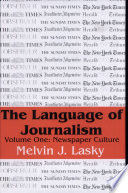 | Eduardo Cadava - 1997 - 276 páginas
...injury to all the members. America is not civil, whilst Africa is barbarous" (AS, ^2).-9 Since "every man is an inlet to the same and to all of the same" (W, 2: 3), no man can commit a violence upon another without committing a similar violence upon himself.... | |
 | Roy Rosenzweig, David Paul Thelen - 1998 - 308 páginas
...Emerson wrote that "Who hath access to this universal mind is a party to all that is or can be done. What Plato has thought, he may think; what a saint...any time has befallen any man, he can understand." By recovering things from the past or by looking at experience differently we can see how to think... | |
 | Melvin J. Lasky - 506 páginas
...to communicate them by words if any other medium is available." CS Lewis, "Studies in Words" (I960) "He that is once admitted to the right of reason is...any time has befallen any man, he can understand.... "There is a relation between the hours of our life and the centuries of time.. ..We, as we read, must... | |
 | David Fideler - 2000 - 482 páginas
...this intellectual timidity, Emerson holds that There is one mmd common to all mdividual men. . . . What Plato has thought, he may think; what a saint...at any time has befallen any man, he can understand Of the universal mind each individual man is one more incarnation.-" For Emerson, in the work of the... | |
 | Joel Myerson - 2000 - 336 páginas
...common to all individual men. Every man is an inlet to the same and to all of the same. . . . What Plato thought, he may think; what a saint has felt, he may...any time has befallen any man, he can understand. Of the works of this mind history is the record. Its genius is illustrated by the entire series of... | |
 | Joel Myerson - 2000 - 336 páginas
...by thought or, as he wrote in "History," mind: There is one mind common to all individual men. Every man is an inlet to the same and to all of the same. . . . What Plato thought, he may think; what a saint has felt, he, may feel; what at any time has befallen... | |
 | David Wittenberg - 2002 - 300 páginas
...historical periods, guarantees that every historical text will be comprehensible to each new reader: "Every man is an inlet to the same and to all of the same. . . . What Plato has thought, he may think; what a saint has felt, he may feel; what at any time has... | |
 | Mary Chayko - 2002 - 256 páginas
...learning about people and events of the past, an individual can come to reexperience history, so that [w]hat Plato has thought, he may think; what a saint...he may feel; what at any time has befallen any man, we can understand. . . . Every revolution was first a thought in one man's mind, and when the same... | |
 | David H. Evans - 2008 - 304 páginas
...identity into universal wisdom. But two sentences later Emerson is offering something rather different: "He that is once admitted to the right of reason is made a freeman of the whole estate" (237). Emerson's transition rides on the implicit semantic duplicity in the word common; before the... | |
| |